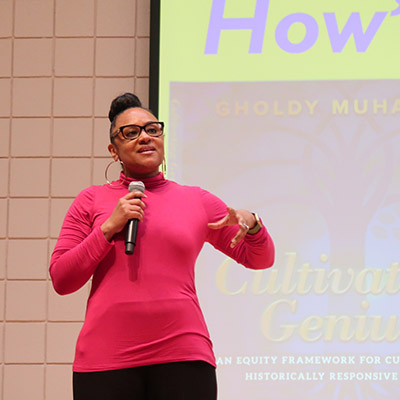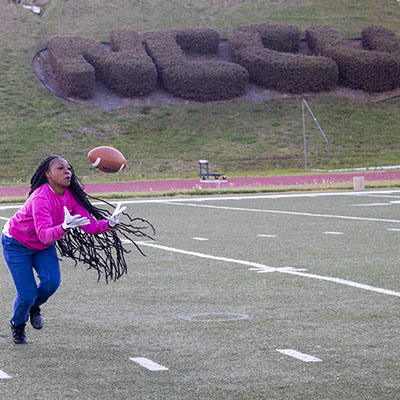“Reject a book that says the South fought to hold her slaves.
Reject a book that speaks of the slaveholder as cruel and unjust to his slaves.
Reject a textbook that glorifies Abraham Lincoln and vilifies Jefferson Davis,” wrote Mildred Lewis Rutherford in her 1919 pamphlet “A Measuring Rod to Test Textbook.”
Rutherford, a white supremacist, intended for educators to minimize the horrors of slavery, to downplay the consequences of a racist apartheid system.
Similarly, people in positions of power, especially in conservative red states, want to set regulations regarding how America’s past is presented to young learners.
The newly released AP African Studies Course aims not only to teach about slavery and the aftermath, but also the vital contributions and present-day experience of African Americans.
This course has been met with a lot of pushback from white conservatives like Governor Ron DeSantis of Florida and Governor Glenn Youngkin of Virginia.
“We want education, not indoctrination,” said DeSantis at a January press conference speaking about his choice to block the AP African Studies Course from Florida schools. “We believe in education in the classical sense.”
But not everyone is buying into the conservative line, a line that many would argue tries to minimize the historical impact of racism and slavery.
“Our purpose is to talk about what racism is on a grand level,” said Torri A. Staton, board co-chair for “weare.”
“Weare” organized the March 17-18 conference “Let’s Talk Racism.” The theme of the N.C. Central University conference was “Understanding the attacks on truth-telling in education.”
According to Staton there is a very intentional effort to silence black voices and black intellectuals.
“They aim to keep communities unaware of their history and keep the idea of radical thought away from all people,” said Staton referring to the recent actions of govenors Desantis and Youngkin. 
According to conference keynote speaker Gholnescar Muhammad, a professor of literacy and culture at University of Illinois (Chicago), the war on black education in higher education has already begun. “It’s always been here, but it’s more explicit now,” said Muhammad.
“The measuring rod of textbook selection was for three different contexts, K-12 education, higher-ed and libraries,” said Muhammad, adding that this is where some conservatives think they can have the highest control over people’s mental state and knowledge.
On one panel, Black male education students representing the Marathon Teaching Institution, said they must become critical independent thinkers and understand the distinction between education and indoctrination.
“An educated mind cannot be enslaved,” said one of the students.


















